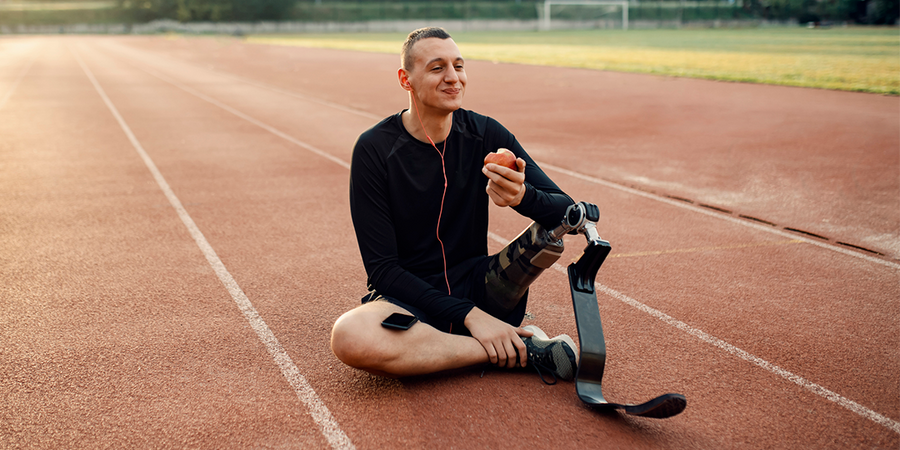
What to Eat to Get the Most Out of Your Workouts
By Kieran Alger
Whether you're training for a competition or simply composition, what you eat before a workout can help you train stronger, build muscle, drop body fat, and perform your best.
"Just by changing what they eat and when, an amateur cyclist or runner can reasonably shave minutes off their times, all the way up to half an hour during a marathon," says Dr. Matthew Cole, associate professor in sport and exercise nutrition at Birmingham City University in the U.K.
Let's explore what to eat before and after a workout by starting with why it matters.
Elevate your training with extra energy, focus, and endurance from LADDER Pre-Workout.
.
How Nutrition Affects Performance
"A bit of commitment in the kitchen can make a massive difference to performance at an amateur level," Cole says. And the reasons for this?
Eating before a workout: "Fueling correctly means you've got enough energy to get the most out of every training session."
Eating after a workout: "Good nutrition helps your body recover from tough sessions so you're ready to work hard in the next one, and it helps your body make training adaptations too."
In short, eating the right food can help you fulfill your athletic potential.
It needn't be a chore either. View it as another fun part of your training.
Experiment with new recipes, try new foods and mix it up — there's no reason, for instance, why you can only eat breakfast foods at breakfast time. This is a cultural norm that has no basis in nutrition.
Go mad and have some chicken instead. Studies suggest that those with a more varied diet may enjoy additional health benefits, so it's win-win.
.
Focus on Macronutrients
So, we know we need to look after our nutrition, but should we be following the paleo method, going vegan, or chowing down on charcoal?
"People seem to want an extreme to follow, but there are no absolutes," Cole says. "A healthy diet should be made up of natural, real food with as few additives as possible — after all, that's what your body's designed to eat."
The important thing, Cole stresses, is eating enough calories to fuel your training, and eating the right foods at the right times.
Carbohydrates
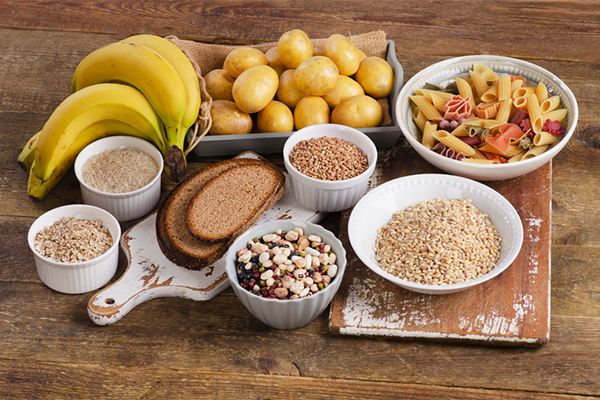
First, you'll want to consume plenty of high-quality carbohydrate sources to build up your glycogen stores. Glycogen is glucose that's stored in your liver and muscles and serves as your body's preferred source of energy during high-intensity workouts.
"And don't forget fruit and veg," Cole adds. "Many athletes focus so much on measuring exact amounts of carbs and grams of protein that they forget about getting their five [servings of fruit and vegetables] a day. But fruit and vegetables are essential, as they contain micronutrients such as vitamins and minerals which help keep you healthy and able to train."
- Whole-grain pasta
- Brown rice
- Potatoes (including sweet potato)
- Corn
- Fruit
Protein
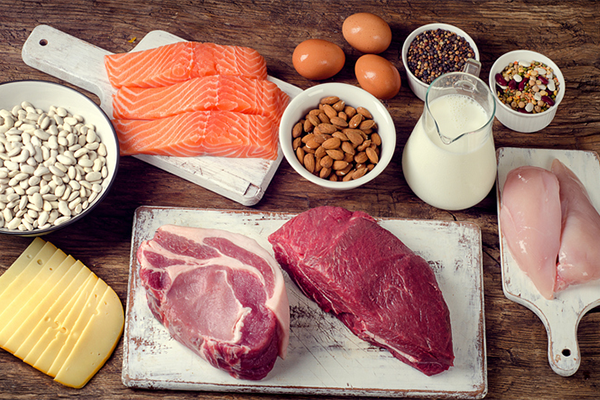
You should eat protein regularly, ideally at each meal, Cole says. "Protein helps your muscles recover and adapt to training, and it also helps you maintain lean mass so any weight you lose in training is fat rather than muscle."
- Fish
- Eggs
- Greek yogurt
- Chicken breast
- Plant-based proteins (organic tofu and tempeh, beans and legumes, pea protein, etc.)
Fat
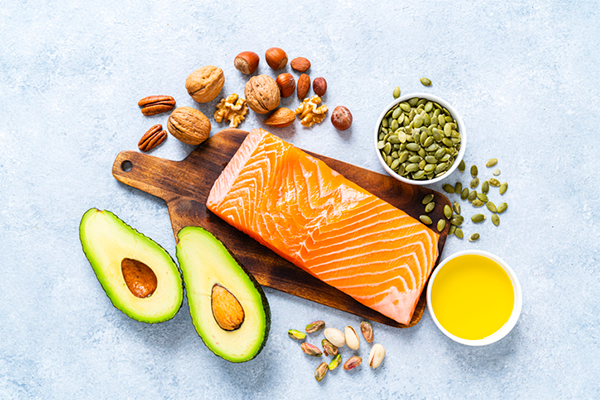
Easy to overlook, healthy fats are as important to your training as anything else you'll eat, providing energy, vitamin transport, hormone support, and more.
However, dietary fats take longer to digest, so only consume them if you have a couple hours until your next workout.
- Fatty fish (tuna, salmon, mackerel, sardines, etc.)
- Healthy oils (olive, avocado, flaxseed, extra-virgin coconut, etc.)
- Avocado
- Seeds (pumpkin, sunflower, flax, etc.)
- Nuts (almonds, walnuts, cashews, etc.)
.
Pre-Workout Eating Strategies, Based on Intensity
What to eat before a workout — and how much — depends on the activity being performed, how long you plan to perform it, and how far in advance you fuel for it, but here's a rough guide:
High-intensity session
"High-intensity training and short bursts of activity mainly burn carbohydrates," Cole says. "It's a good idea to have a source of carbs such as [oatmeal] or a sandwich a couple of hours before, just to make sure your blood glucose level is where you need it to be so you can get the most out of training."
For a sneaky endurance benefit try drinking beetroot juice too. Scientists found that taking supplements of the nitrate-rich vegetable improved the performance of elite kayakers by 1.7 percent. On the journey to a PR, every little bit helps!
Moderate-intensity session
Generally, you shouldn't need to eat during training sessions that last an hour or less, Cole says. "If you're running or riding for an hour or so at tempo or race pace, eat a high-carbohydrate breakfast or meal the night before to make sure you've got enough fuel to burn and keep you going during your session."
Long, low-intensity session
"For long runs or rides you'll be working at a low-intensity level, which burns a greater percentage of fat," Cole says. A mixed meal with a balance of carbs, protein, and fat can help sustain energy levels for as long as possible, but "to get your body used to using fat as a primary fuel source, you may want to take on minimal carbs before these sessions."
After an hour or so, your glycogen stores will be depleted. Keep energy levels topped off with sports drinks or energy gels, which provide an easily digested, fast-acting source of carbohydrate, and often contain water and sodium to keep you hydrated and replace minerals lost through sweat.
.
How to Eat for Recovery
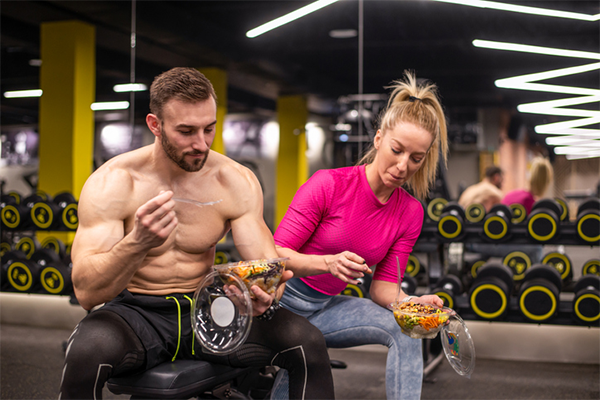
While a hard session may leave you feeling like eating everything in sight, it's not just a matter of replacing calories. What you you eat after a workout can have huge benefits — and costs, if you're not careful.
"Taking in protein regularly for 24 hours after exercise helps repair damaged muscles, generate more tissues for muscle growth, and causes adaptations in mitochondrial function — the structures that help you produce energy," Cole says.
Depending on the intensity of your workouts, the amount of protein you need can spike to two grams per kilogram of bodyweight, per day. Food sources are ideal, but a protein shake is also a convenient option.
An added bonus to protein sources that are rich in the amino acid tryptophan — such as turkey, chicken, nuts, seeds, and dairy — is that they can help boost sleep-promoting hormones, encouraging a good night's sleep so you're ready for training the next day. This effect works best when proteins are combined with carbohydrates, which also helps replace carbs depleted through exercise.
.
5 Dietary Mistakes to Avoid
What you do for your nutrition is important to your results — so is what you don't do.
1. Radical change
Overhauling your diet completely can make it daunting and hard to maintain. Cole recommends making no more than a few changes to your diet at any one time. Once those become habitual, try a few more, and so on.
2. Alcohol
You don't have to go teetotal, but try to avoid booze before a tough training session or race. Alcohol is a diuretic, which can leave you dehydrated, and it also affects blood sugar, coordination, and body temperature, all of which can have a negative effect on your performance.
3. Going hungry
While fat loss may be one of your goals, you also need to ensure you're taking in enough food to fuel your workout, or you're not going to realize the full benefits of your training. So make sure you're ingesting sufficient calories for the duration and intensity of your workouts.
4. Trying something new on race day
Practice your race day nutrition strategy on your long runs or rides so you train your gut to absorb fuel without causing discomfort. And stick to the brand you've trained with. If you have a bad reaction to a sports drink or gel in training, no big deal — but if it happens on race day, it can negate months of hard work.
5. Processed foods
Make sure the foods you eat undergo minimal processing, which often conceals unnecessary sweeteners, emulsifiers, preservatives, flavors, colors, and other additives. The salt, refined sugars, and fats common in these processed foods can lead to weight gain while providing little to no nutritional benefit.



